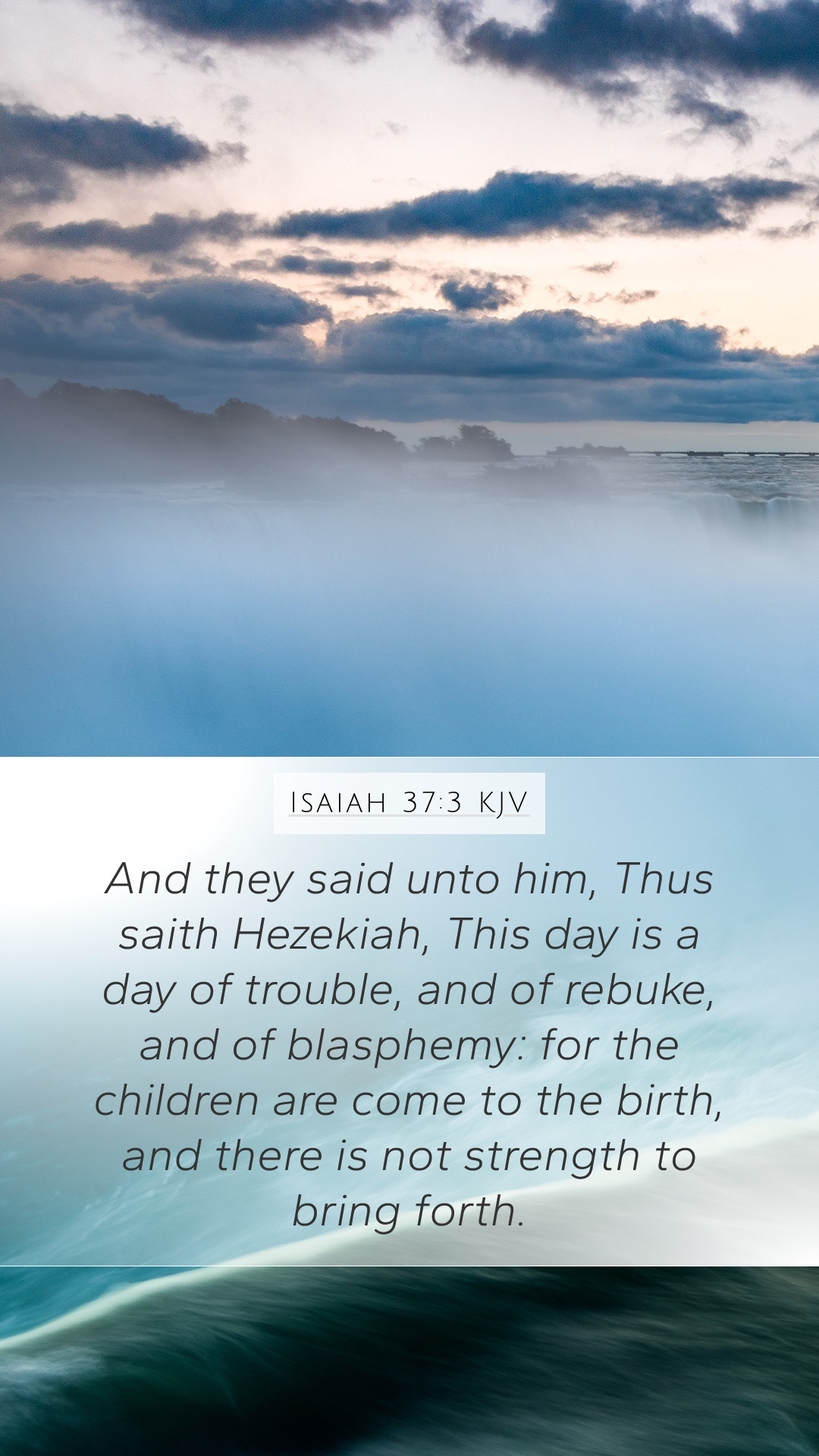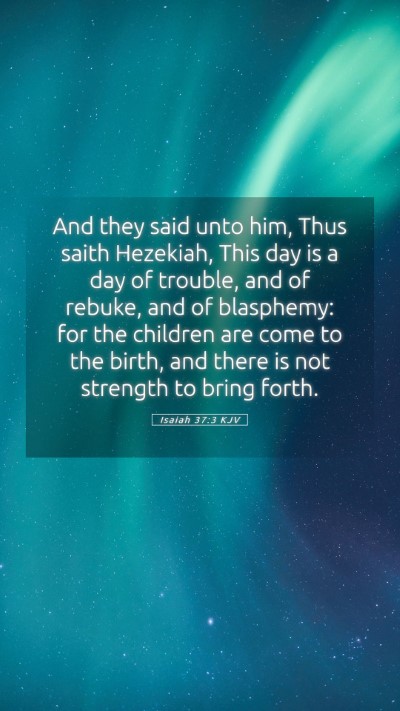Understanding Isaiah 37:3
Isaiah 37:3 states:
"And they said unto him, Thus saith Hezekiah, This day is a day of trouble, and of rebuke, and of blasphemy: for the children are come to the birth, and there is not strength to bring forth."
This verse presents a poignant moment during King Hezekiah's reign as he faces a dire situation, with the Assyrian threat looming over Judah. Through insights from various public domain commentaries, this passage reveals critical themes and meanings. Below are some combined explanations from renowned commentaries, such as those by Matthew Henry, Albert Barnes, and Adam Clarke.
Context and Key Themes
-
Historical Context:
Hezekiah was the king of Judah during a time of great peril. The Assyrian Empire, under Sennacherib, was aggressively expanding and had already captured many nations. The reference to a day of trouble underscores the national crisis facing Hezekiah's people.
-
Spiritual Reflection:
The phrase "day of trouble" emphasizes a moment where distress and rebuke from the enemies of God are prevalent. This teaches about the spiritual warfare believers face and highlights a need for reliance on divine strength.
-
Symbolic Imagery:
The metaphor "children are come to the birth, and there is not strength to bring forth" illustrates a situation of urgency where something significant is expected, yet there is an inability to fulfill it. This metaphorically portrays the hopes of the people that are at stake.
Bible Verse Interpretations
-
Matthew Henry:
Henry comments on the urgency of the situation, noting that Hezekiah recognizes the gravity of their plight. The image of childbirth speaks to the pain and struggle of the moment, appropriate for the desperation felt by a king seeking help in dire circumstances.
-
Albert Barnes:
Barnes emphasizes the dual aspects of this verse: physical and spiritual. The distress felt by Hezekiah reflects not only the immediate danger but also the spiritual collapse that could follow if God does not intervene.
-
Adam Clarke:
Clarke focuses on the sense of helplessness imbued in the text. The metaphor of childbirth indicates that there is an expectation of new life or deliverance, yet the lack of strength symbolizes a critical need for divine assistance.
Lessons and Applications
This verse provides profound insights for contemporary readers, including:
-
Dependence on God:
The inherent message is that in moments of distress, believers are called to rely on God's strength rather than their own. This underscores a vital aspect of faith, especially when facing overwhelming circumstances.
-
Understanding Spiritual Warfare:
As seen through Hezekiah's plea, recognizing the spiritual battle behind physical conflicts helps believers prepare for and engage in prayer and reliance on God’s power.
-
Expectation of Deliverance:
The metaphor of childbirth implies hope. Even in despair, believers should maintain faith that God can bring forth renewal and restoration from adversity.
Related Bible Cross References
- 2 Kings 19:1-5 - Hezekiah's response to the Assyrian threat.
- Isaiah 26:17 - The imagery of childbirth further explored.
- Psalm 30:5 - A reminder that joy comes in the morning after troubles.
Conclusion
Isaiah 37:3 serves not just as a historical account but also as a significant lesson on faith, dependence, and the hope for God's intervention in times of trouble. Understanding such Bible verses through commentary can deepen one's Bible verse understanding and equip individuals in their Bible study lessons.


